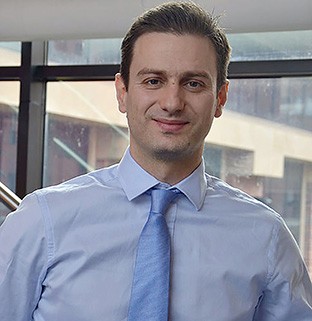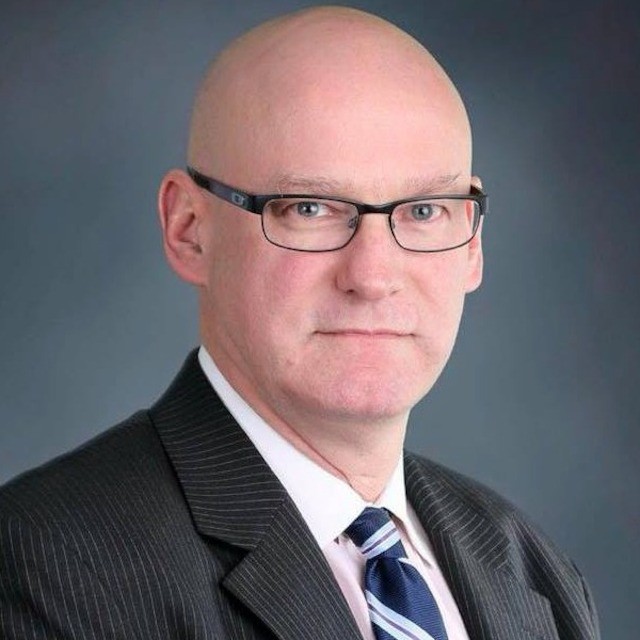Think of a CFO, and some images may come to mind: mousy accountant, controlling number cruncher, humorless process driver. But increasingly CFOs are eschewing these not-so-nice stereotypes, embracing risk and evolving to become value creators.
According to a recent study by University of Liverpool finance professors Chris Florackis and Sushil Sainani, organizations with strong CFOs tend to hold less cash in reserve than those with weak ones. The study—which looked at more than 1,500 CFOs at U.K. companies listed on the London Stock Exchange over a 13-year period—found these CFOs strategically reinvest their firm’s liquidity and have a “superior ability” to secure external funds during periods of financial stress. They use their financial acumen to harness risk—not run from it.
Take U.K.’s Premier Oil. A few years ago, declining global oil prices and a failed project near the Orkney Islands decimated the company’s stock prices and plunged it into debt. Instead of retreating, Finance Director Richard Rose and CEO Tony Durrant knew that acquiring North Sea oil fields owned by German-firm E.ON was their best hope to turn things around.
All the two leaders had to do was convince bankers to do the unthinkable in such a volatile industry: loan them $120 million for the purchase. “We were able to articulate a clear set of numbers that we were able to meet or beat on a monthly basis,” Mr. Rose said in an interview with FinancialDirector.co.uk. “We were able to say fundamentally this is a solid business, which was important for our credibility.” The gamble paid off. Premier Oil’s North Sea assets are now valued at $1 billion.
“Taking risk is not necessarily a bad thing, right? Taking risk in a controlled way is ideal.”
—Chris Florackis, finance professor, University of Liverpool
“Taking risk is not necessarily a bad thing, right?” Mr. Florackis says. “Taking risk in a controlled way is ideal.”
Think about one of the riskiest decisions any executive can make—an M&A. The United States alone has seen over 325,000 M&As, totaling more than $35 trillion, during the last two decades. “It’s a huge number,” Mr. Sainani says. “An M&A is one of the activities that can destroy a huge amount of value for the firm. But it can create a huge amount of value, too.”
While any CFO can dissect a prospect’s financial statements to see if it is worth the investment, strong CFOs assert their influence and caution aggressive CEOs against making fatal mistakes. This is especially valuable when firms fall into bidding wars. “Yes, the financial expertise is important, but you’re going to need to convince the board and CEO,” Mr. Sainani says.
They are also likely going to have to convince a bank to help finance an acquisition. This means “the CEO and the CFO must be on the same page and have a convincing story of why this investment is beneficial for the company and its stakeholders,” Mr. Florackis says.
The CFO’s leading role in the M&A process makes sense given the way external financing has changed since the 2008 financial crisis. Brash CEOs had been able to secure risky loans, often on the basis of their personality alone. Since then, banks have tightened procedures and grown more skeptical of CEO claims.
“Now you need some sort of credibility, and I think this is where the CFO enters,” Mr. Florackis says.
CFOs in strategic positions must be able to support their decisions with a trusted track record and convincing arguments. “The way they manage the working capital and cash flow in the firm—it’s all a reflection to the bankers of how the firm is performing,” Mr. Sainani says. “They see the firm through that lens, and they trust CFOs.”
All the more reason that even as the CFO role evolves, CFOs must remain committed to their core responsibilities—overseeing controls, delivering accurate reporting to stakeholders and ensuring an optimal mix for their firm’s capital structure.
The CFO as Value Creator
Jack McCullough, founder of the CFO Leadership Council and chair of the MIT Sloan CFO Summit, has seen the role evolve in recent years to become more strategic. But he is skeptical of the implications of the University of Liverpool study—that better CFOs know how to invest cash.
“I’m not sure they should be taking risks with cash. To what end? Investors are taking a risk on the firm’s ability to execute a strategy, not the CFO’s ability to get high ROI on excess cash,” Mr. McCullough says. “This is one of the few places I would advocate a very, very low-risk strategy. Preservation of capital is paramount.” As a former financial executive at more than 25 early-stage companies, he has seen what happens when CFOs become poker players.
Instead Mr. McCullough believes that the best CFOs are becoming more like CEOs and creating value in a way that is much larger than just embracing risk. “They’re taking the initiative,” he says.
He points to Sarah Friar, former CFO at Square, as a prime example. “She was one of the first CFOs to talk about blockchain and recognize that it was a competitive advantage for her firm. Sarah had that strategic thinking.”
“CFOs are known as the ultimate straight shooter.”
—Jack McCullough, founder, CFO Leadership Council
Square has already reaped the benefits. In the second quarter of 2018, the fintech company’s cryptocurrency profits doubled, despite a slow market. And when Ms. Friar announced she would be stepping down as CFO to take over as CEO at the neighborhood networking service Nextdoor, Square’s share price fell 10 percent.
To Mr. McCullough, this speaks volumes about her reputation and value. “If the CFO at Facebook were to leave, I could almost guarantee the stock wouldn’t be affected very much.”
The evolution of the CFO to value creator will ultimately bring more and more CFOs into the CEO role, according to Mr. McCullough. It is a trend found in the University of Liverpool study. Mr. Sainani points to Richard Pennycook, who scored in the 90th percentile in the study’s CFO strength index.
According to the report, “It is widely recognized that Richard Pennycook was responsible for turnaround of [supermarket chain] Morrisons after the financial trouble of 2005 when the takeover of Safeway Plc. and decline in market share led to a collapse in firm profits.”
That track record paved the way for Mr. Pennycook to become CEO of British retail giant Co-operative Group in 2013 after the company was thrown into chaos by a boardroom scandal and a $1.9 billion funding shortfall. Over the next three years, Mr. Pennycook engineered a dramatic turnaround of the 70,000-person company, streamlining corporate governance, securing stopgap financing and repairing the retail giant’s tattered image along the way.
In many ways, Mr. Pennycook is a poster child for the value and abilities of the influential CFO. His bookish demeanor belies a man with excellent analytical abilities, sound business acumen and icy nerves. As a close colleague observed to The Guardian in 2014, “[he’s] usually the last person to offer his opinion, but when he does it’s the most worth hearing.”
And that ties back to a characteristic that may never change for CFOs.
“CFOs are known as the ultimate straight shooter,” Share on X Mr. McCullough says. “People believe what they say. It’s sort of in our DNA.”







